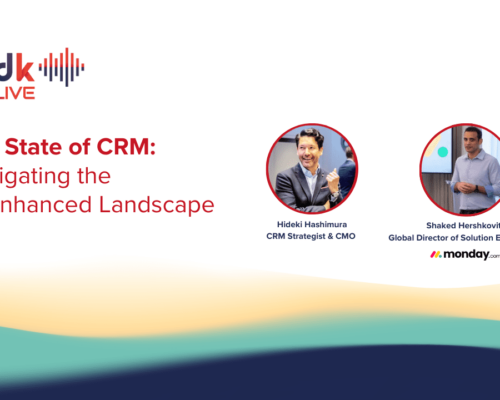In this third part of our summary of The Connected Customer report’s findings, we look at automation in marketing services, the challenges in its implementation, and the power and value of data in the modern marketing ecosystem.
The Connected Customer report, produced by redk in partnership with IDG Research, delivers the results of a survey of over 100 companies in Europe to consider the challenges presented by an increasingly connected consumer landscape. With responses from a wide variety of industries, the report finds that CRM transformation is now a strategic imperative for organisations.
In this third part of our summary of the report’s findings, we look at automation in marketing services, the challenges in its implementation, and the power and value of data in the modern marketing ecosystem.
‘When it comes to CRM, it is not so much a question of increasing the number of features, but of focusing on the right ones and ensuring that they are used’
Transforming CRM requires a critical shift
Successful CRM transformation begins with changing what CRM means to your organisation by understanding the changed nature of the customers’ journey and interactions, and the company-wide, strategic value of the undertaking. Getting department heads on board with a governance model from the start offers the best chance of bringing the three critical components – people, processes, and technology – in line.
Since every department will be affected by what is, the report says, a programme of projects rather than a single undertaking, our report makes it clear that it’s down to senior management in each area to ‘clear bottlenecks and expedite decision-making’. Furthermore, CRM transformation must be closely tied to the overall strategic vision for the business; only when that vision is clear to all the company’s senior players can tech decisions be made.
‘Changing the way people work involves changing the way teams are organised, the tasks they perform, and even their incentives. This, in turn, is an organisational shift that can only happen if it’s driven by senior management.’
Automating marketing services must focus on desired outcomes
The report provides four examples of the sort of design thinking that’s critical in the transformation of marketing services. These are not mutually exclusive, each needing to be integrated into the architecture of the overall CRM solution if it’s to add value and deliver growth:
- Improved customer experience comes from any time/anywhere communication, self-service channels, and expanding your digital channel offering.
- On-the-spot commercial offer generation requires a complete, accurate picture of the customer to enable personalisation, and the tool to be quick and easy to use so offers can be made in real-time.
- Acquiring more customers needs more marketing actions, accurately targeted and personalised based on customer behaviours.
- Increased recurring business is facilitated through the automation of subscription renewals, upselling, and cross-selling.
Given the right impetus from senior management, a solution that was designed with a long-term, strategic vision from the outset, and strong governance from start to finish, CRM transformation will add huge and measurable value to your business. Just ask Arconvert, whose marketing and sales functions were harmonised and processes streamlined as they transitioned into a fully digital business cycle.
‘Connected customers expect 24/7 availability and service that doesn’t take up any more of their time than necessary. This means that the company must have all necessary data readily available, reducing the effort required from the customer and reducing friction in the interactions.’
It’s all about data
Understanding customer journeys and needs, personalising marketing, and implementing seamless, automated systems for users on both sides of the transaction journey all have a fundamental prerequisite in common: data.
Data is your business’s most powerful marketing asset, whether for facilitating personalised and omni-channel marketing, guiding your model on lead scoring, or driving automated marketing actions based on where customers are in the purchase funnel.
However, simply put, not every company has the tech stack or process solutions in place to fully leverage the data they’re gathering, especially in typically non-digitalised sectors; our report finds that 54% of sales representatives, for example, have trouble even accessing the data they need. And while 45% of companies report progress on centralising business data, they also report that automation and analytics are limited. “What follows,” our report says, “is that the company is left with no objective mechanisms to assess its true effectiveness.”
You can download the full report here, and we’ll be looking at the report’s findings on customer experience in part four of this analysis. At redk, we know how to harness the power of data to integrate your marketing processes, nurture leads, produce personalised omnichannel content, and automate efficiently. Talk to us today to discover what we can do for your organisation.










